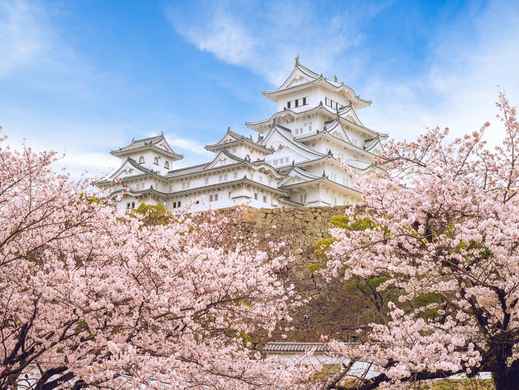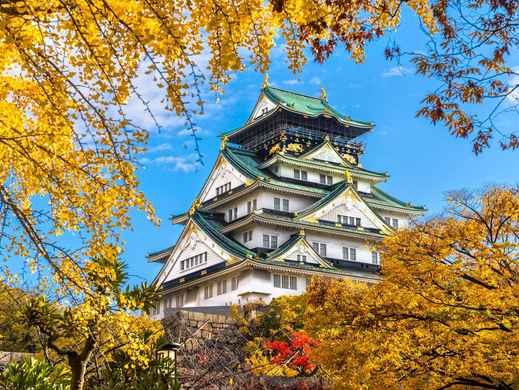


Matsue-shi
Asia
/
Japan
/
Matsue-shi
Matsue, a picturesque city nestled along the shores of Lake Shinji in western Japan, offers a captivating blend of natural beauty, cultural richness, and urban charm. Known for its mild coastal climate, Matsue enjoys pleasantly warm summers and relatively mild winters, making it an ideal destination year-round. The city's rich history and traditions are evident in its well-preserved samurai districts, historic castles, and traditional artisan workshops.
Matsue's unique appeal lies in its harmonious coexistence of modernity and tradition. While embracing contemporary comforts, the city takes immense pride in preserving its cultural heritage, exemplified by the majestic Matsue Castle and the iconic black-walled storehouses that line the picturesque canals. The local lifestyle revolves around savoring the simple pleasures of life, such as strolling through the charming streets, admiring the meticulously manicured gardens, and indulging in the region's renowned cuisine.
Foodies will delight in Matsue's culinary delights, particularly the fresh seafood caught from Lake Shinji and the nearby Sea of Japan. The city is renowned for its Izumo soba noodles, a local specialty crafted from buckwheat and served in a delectable broth. One of the standout experiences is participating in a traditional tea ceremony, where visitors can immerse themselves in the intricate rituals and customs of this revered practice.
Outdoor enthusiasts will find solace in the city's natural surroundings, with opportunities for hiking, cycling, and exploring the stunning Izumo Taisha Grand Shrine, one of Japan's most ancient and revered Shinto shrines. Matsue's unique charm lies in its ability to seamlessly blend the old and the new, offering visitors a chance to experience the authentic heart of Japan while embracing modern comforts.

Travel Tips for Matsue-shi
What you need to know before traveling here
Getting Around Matsue-shi
A guide to Matsue-shi's local transportation
Matsue City does not have a metro system. However, the city is relatively compact and easy to navigate on foot or by using local buses and trains.
Practical Tips for Matsue-shi
Things to prepare and best way to visit
While English proficiency is not as widespread as in major cities like Tokyo or Osaka, many establishments in Matsue's tourist areas have English-speaking staff or provide English menus and signage to accommodate international visitors.
The currency used in Matsue is the Japanese yen (JPY). Major credit cards are widely accepted, and there are currency exchange services available at banks, post offices, and some hotels.
While Matsue is known for its seafood and meat-based dishes, there are some restaurants and cafes that offer vegetarian and vegan options, particularly in the city center. It's advisable to research beforehand or seek recommendations from locals or your accommodation.
Visiting museums like the Matsue History Museum and the Lafcadio Hearn Memorial Museum, as well as taking guided tours or participating in cultural workshops, can provide valuable insights into Matsue's rich history and traditions.
Matsue offers several unique cultural experiences, including participating in a traditional tea ceremony, exploring the preserved samurai districts, visiting artisan workshops to witness traditional crafts like sword-making or pottery, and attending festivals celebrating local customs and traditions.
See All Practical Tips for Matsue-shi

Explore Matsue-shi
Create your itinerary with our top picks below

Travel Tips for Matsue-shi

Explore Matsue-shi
More Destination Near Matsue-shi




































 Facebook
Facebook Instagram
Instagram TikTok
TikTok Youtube
Youtube Telegram
Telegram
